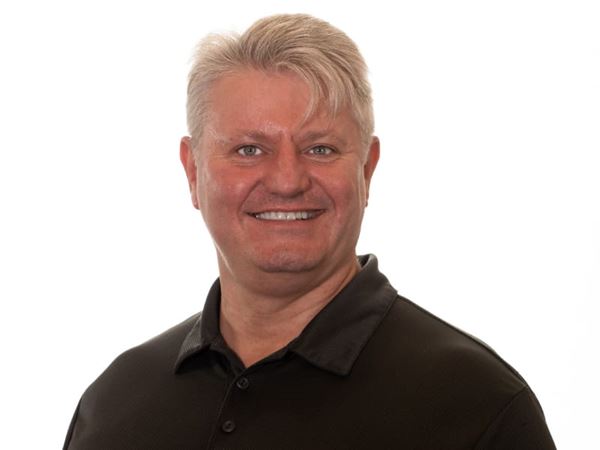Walking the Talk

A lifelong New Yorker, Sharon Bond views walking as an enjoyable way to get from point A to point B, and she commonly treks five miles at a time. The health-conscious 56-year-old also belongs to a gym, supplementing her urban excursions with time on the treadmill.
So, it caught Sharon off guard when, at the age of 47, she began to feel dizzy and short of breath. Her symptoms alarmed a trainer at the gym enough that he took her blood pressure. It was so high that he instructed her to leave and not return without a doctor’s note.
Sharon called her primary care doctor right away, and her blood pressure was still off the charts when he checked it. After a physical exam, he diagnosed her with a heart murmur and prescribed blood pressure lowering medication, advising her to return if the symptoms got any worse.
They did. Walking home after a lunch date a few days later, Sharon felt so dizzy that she had to lean against a building to steady herself.
About two weeks later, Sharon had a heart attack. Further medical tests revealed that she also had the genetic form of hypertrophic cardiomyopathy, or HCM. HCM isn’t considered a cause of heart attack or general hypertension. However, it’s not uncommon for someone with HCM to also have high blood pressure and HCM can lead to other conditions.
What to Know About HCM
It’s estimated that 1 in 500 people in the U.S. have HCM, but a large percentage of patients are undiagnosed. Indeed, it’s considered the most common genetic disease of the heart muscle and can affect people of any age.
HCM can be the result of a genetic mutation that causes the walls of the left ventricle to thicken and stiffen. This reduces the flow of blood into and out of the heart.
People who have family members with HCM should have their hearts checked to see if they also have the condition.
“Once we’ve found the change in the DNA that’s causing disease, we offer to test any interested blood relative for that same change,” said Dr. Anjali Owens, the medical director at the Penn Center for Inherited Cardiac Disease and an assistant professor of medicine at the Hospital of the University of Pennsylvania. While not all HCM patients have an identifiable genetic mutation, genetic testing can be a valuable tool to identify patients at risk.
HCM is a thickening of the lower main pumping chamber of the heart (the left ventricle). There are two types of HCM. As with over 60 percent of HCM patients, Sharon’s was obstructive. With this type of HCM, the wall (septum) between the two bottom chambers of the heart becomes enlarged and limits blood flow out of the heart.
“With obstructive HCM, it’s really hard for the blood in the chamber to leave the heart because the thick part of the muscle is in the way,” Owens said. The walls of the pumping chamber can also become stiff.
Thirty percent of patients have non-obstructive HCM that occurs when the thickened heart muscle doesn’t block blood flow. The heart’s main pumping chamber still becomes stiff, which limits how much blood the ventricle can take in and pump out.
Chest pain, shortness of breath, fatigue, fainting, and palpitations due to abnormal heart rhythms (arrhythmias) are the most common symptoms of HCM, but some people have no obvious symptoms. “In patients who have symptoms, we generally start with lifestyle and medication,” Owens said.
HCM symptoms may get worse and new symptoms may appear over time. This can lead to impaired function, lesser quality of life, long-term complications, and more financial burden. People with HCM are often forced to make lifestyle changes, such as limiting their activity, to adapt to their disease.

Photo courtesy of Erin Schiffman
“It’s an area of active research to find out how much activity is safe and good for you,” Owens said. “We very rarely would say not to exercise, but we may give some suggestions about how to safely exercise by warming up, cooling down and staying hydrated, which helps the heart muscle to stay nice and full.”
People with HCM are at greater risk for other serious conditions such as atrial fibrillation (AFib). AFib is a quivering or irregular heartbeat (arrhythmia) that can lead to blood clots, stroke, heart failure and other heart-related complications.
HCM is chronic and can progress, causing some patients to develop the clinical syndrome of heart failure. Heart failure means that the heart isn’t able to keep up with the needs of the body. HCM prevalence increases with age.
Early detection and monitoring may help reduce some of the consequences of HCM and improve outcomes. Typically, HCM is diagnosed using echocardiogram to get an idea of the thickness of the heart muscle and observe blood flow from the heart.
Current treatment guidelines recommend using medication to relieve symptoms and help with function, but there’s no targeted HCM treatment. Beta-blockers or calcium channel blockers to relax the heart muscle offer limited and varying results and may have adverse effects. There are currently no medications that treat the underlying cause of HCM.
An implantable cardioverter-defibrillator — a device that continuously monitors the heart and delivers a shock for dangerous heart rhythms — may also be used in HCM patients with arrhythmias to reduce their risk of sudden cardiac death. For HCM patients who continue to have quality-of-life-impairing symptoms despite medication, surgery to reduce the obstruction is considered. A similar option is not available for those with non-obstructive HCM. Heart transplants are considered as a last resort for those who progress to end stages of the disease.
The Road Forward
Less than a week after Sharon’s HCM diagnosis, the obstruction was severe enough that surgeons performed a septal myectomy, removing excess muscle from Sharon’s septum. “I was scared that I might not come back,” she said. “If I die, who will take care of my family?”
When Sharon woke up after her surgery, several days had passed. As a complication from the procedure, she had frozen shoulder syndrome and required months of physical therapy before she regained the use of her left arm. “The road to recovery was long and very painful with many sleepless nights,” Sharon said.
Managing her HCM is an ongoing process. Sharon sometimes has heart palpitations and problems breathing, and she has been hospitalized a few times to undergo testing to make sure that her septum has not thickened again.
Eager to raise awareness about HCM, Sharon signed up on the American Heart Association’s volunteer page as soon as she felt able. In 2014, Sharon was named a Red Cap Ambassador for the New York Wall Street Run & Heart Walk, “I have been an ambassador ever since in NYC.” Later she founded her own nonprofit organization, The Heart Speaks Foundation(link opens in new window).
Sharon recommends the following to HCM patients:
- Attend every medical appointment, even when you don’t feel like it, and follow your doctor’s instructions about medication and lifestyle. “Sometimes I want to eat cake and do what everybody else does,” Sharon said. “I can do that on a Monday, but on Tuesday, I have to get back to being a survivor.”
- Talk with a mental health professional. People with HCM may experience anxiety and depression. “I have a psychologist, and it helps to talk with him,” Sharon said.
- Write down any questions and also the doctor’s answers. “You’ll want to reference them later,” Sharon said.
- Get all your doctors on the same team. Sharon’s primary care doctor, cardiologist and psychologist communicate regularly about her condition and treatment.
While Sharon worries about how her condition will progress in the future, Owens said that HCM patients have cause for optimism. Instead of open-heart surgery, for example, many patients are candidates for a less invasive procedure using a catheter.
“I would be hopeful that there are new therapies that are being developed that will really change the landscape of how we treat HCM,” Owens said. “We can help you to live a full life.”
Patient hopes to solve 'puzzle' of his heart condition







